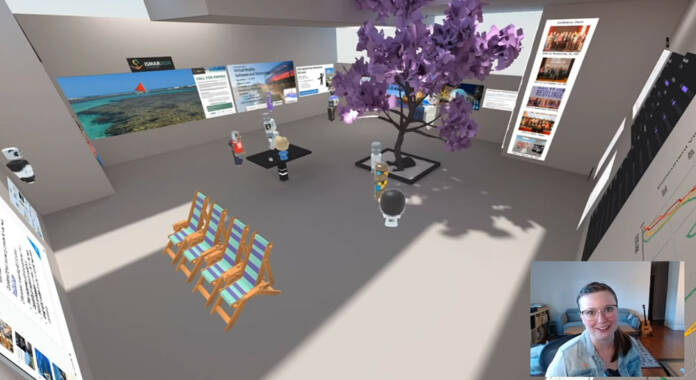
Mozilla has just announced a preview of a subscription-based upgrade of its four-year-old Mozilla Hubs online meeting space.
The new version builds on the core functionality of the old but adds full account management tools, extra security and privacy, and full branding facilities. All the extras will cost $20 a month.
A few years ago it seemed like everyone and their dog wanted to start up an online ‘virtual space’. Predating the Meta Metaverse by several light-years was Mozilla, and its Hubs offering.
This virtual world let you create and manage a private 3D space, where you could meet with friends and colleagues and… well, chat and stuff — all in glorious ultra-low poly count pastels.

The room was designed for sharing, so you could drop photos, videos, and other digital stuff anywhere you wanted, and use audio and text to chat with your fellow roommates. It was all jolly, pretty, and appealing.
Hubs Cloud offers increased security and media streaming on demand
It was totally open source, free to use, and gained a bit of a following. The company called it ‘open social VR’ and it worked on any device, including the up-and-coming VR headsets of the time.
During the pandemic, the service started to attract even more interest, especially for those companies suffering from Zoom burnout. So in 2020, Mozilla introduced a paid enterprise version, Hubs Cloud, which charged AWS hosting fees.
This Hubs Cloud version offered increased features, more security, and media streaming on demand, and within the first month of the launch, over 30,000 users jumped on board.
Mozilla Prides Itself On Open Architecture
It also featured ‘spatial audio’, which meant you could only chat with someone if you were near to them, thus improving privacy where needed. The rooms were also persistent, so once you had a room, it was yours to keep on your account.
Applications ranged from classrooms to craft fairs and a virtual chess board. One South African company even set up a virtual treasure hunt using the platform.
The service has piqued the interest of many, but it isn’t without its problems
The service has gained fans because of its open-source foundations, and the enterprise version now boasts a regular user base, although the company hasn’t revealed any specific numbers.
Education customers were attracted by the chance to enjoy a measure of ‘presence’ in their meetings, rather than flat video streams, and the fact that no data is stored after the meeting ends. However, there have been reports of problems with scaling, especially with larger numbers of attendees trying to interact at once.
Hopefully, the new subscription model won’t suffer from these problems. It’s hard to imagine that paid subscribers will be willing to put up with janky performance and glitches in their virtual engagements. Mozilla will also be retaining (or re-introducing?) a free version of the service, and at the time of writing, the old free version is still in action. At least in this part of the world.














